The Power of Emotional Intelligence in Leadership

I learned a valuable lesson in Emotional Intelligence the moment I acquired WDHB. Imagine me coming from the corporate world, 26 years in business, and I was in the process of acquiring a boutique Learning & Development company. Before, when I was leading teams of up to 3500 people over 32 countries, I never had time to connect with people one-on-one. Suddenly, here’s this small company with 2 employees and a couple of contractors– all of whom I’m working with directly– displaying their work ethic, passion and drive without the slightest interest in impressing me as their boss. Very quickly, I learned a humbling lesson: Without any board or shareholders to impress, the only people I had to answer to were these employees. If my goal was to change things in the business world, I had to change myself first, proving to this team that I deserved to be their CEO and fulfill the mission of WDHB.
This is exactly why I don’t believe there’s an exercise or technical skill out there that can make you a more emotionally intelligent leader. You can read as many books as you want, but the change has to happen from within. You commit to ongoing internal work in everything you do, making emotional intelligence skills a part of your DNA—for the company, for the team and for whoever else you meet in life. Let’s dive into the true purpose and components of emotional intelligence so that you can start your journey towards changing your mindset.
Introduction to Emotional Intelligence in Leadership
What Is Emotional Intelligence?
There has been talk of Emotional intelligence (EQ) as early as the 1930s, but it really picked up popularity in the 1990s with Peter Salovey and John Mayer’s milestone article, “Emotional Intelligence,” and Daniel Goleman’s book published in 1995, “Emotional Intelligence: Why It Can Matter More Than IQ.” Nowadays, it is such a loosely used combination of words that I think everybody’s going to have a different definition.
In my mind, emotional intelligence is all heart. It’s the way we engage with our emotions and the emotions of others. More than just empathizing or telling someone they did a good job, a high EQ comes from truly stepping into another person’s shoes and feeling what they’re feeling. Emotional intelligence is also how we build relationships, improve self-awareness and motivate others around a common goal. Just remember that it’s a two-way street: if the other person is not willing to be open, you can do whatever you want to do and emotional intelligence won’t get you any further with them.
What is the Importance of Emotional Intelligence in Leadership?
If someone had tried to teach me about emotional intelligence while my corporate bosses were putting me under constant pressure to perform, I wouldn’t have given two hoots. The change happened because, as a business owner, I had the power to change and no one to answer to. When Sam and Imane (our Chief Client Officer and Chief Development Officer, respectively) made me make that shift, I began to understand what really mattered—and it wasn’t maximizing net profit. Instead, I saw that WDHB’s success comes from investing in the passion our employees bring every day. In my mind, the true importance of emotional intelligence in leadership and business is building and nurturing connections with people that make you better.
This is not an easy change, and it won’t come naturally to leaders if they don’t see the value and work on it. It’s a lot easier to ignore moments in life that can challenge you, but you’ll miss out on the people that make a difference. No skill sets or learning exercises can make up the difference.
Understanding the Components of Emotional Intelligence
Self-Awareness
In a well-known study by Tasha Eurich, 95% of people believe they are self-aware while only about 10-15% truly are. This is because real self-awareness is our ability to define our own strengths and weaknesses, and that accuracy only happens when you get a lot of honest feedback. A 360-feedback assessment, where you evaluate your own skills and job performance and compare it to the opinions of your team members, can help you paint a more accurate picture of yourself and your leadership skills.
Self-Management
Self-management is all about self-regulation and conflict resolution. How are you managing your emotions when tensions rise? For me, self-management is walking away, keeping the door shut at times, and thinking. I also spend time doing things I love, like reading books. One big thing I practice for resolving conflict is recognizing my mistakes and saying sorry. I believe it takes a lot of courage to put a hand up and say, “I goofed up,” but I also understand that I’m in a privileged position. As CEO, even though I am responsible for the company and the team, I am still in a privileged position to make the final call without reporting to a board or other shareholders. It takes a lot more courage for somebody else in the company to own their mistakes in the same way. Still, modeling accountability for my team can set the tone and show others that it’s okay to goof up sometimes. Conflict resolution takes practice, but it starts with building social skills and coping strategies that help you to feel calm and in control.
Social Awareness
As Simon Sinek put it: be the stupid person in the room. If you want to build social awareness—your ability to read a room– go in as the guy who’s clueless and needs to ask a lot of questions. You become a lot more open to new ideas and look to others in the room for solutions. Coming in as a know-it-all puts you on the wrong foot when connecting with people on a deeper level.
Along with leaving your ego at the door, learn to be a better listener by being less judgmental. We judge people all the time, sometimes without even realizing it. Those snap judgements close off your social awareness, but that’s also human nature. If you realize you’re doing it, then you are progressing in the right direction as an effective leader in tune with their emotions.
Relationship Management
Relationship management is all about how we work together with others. The cornerstone of any great relationship is trust, and we build trust through consistency. Again, showing up for people needs to be in your DNA as an effective leader.
Building trust comes down to listening. You might try more check-ins with your team, which builds in more opportunities to get to know people over time. I also use “yes and” a lot, which is a way to build on ideas instead of shutting conversation down with one-word answers. Last but not least, choose your battles wisely. You’re not going to win every argument, so learn to take a stance when it really matters.
What Are the Benefits of Emotional Intelligence in the Workplace?
Emotional intelligence skills are a critical part of leadership. Here’s what happens when a leader models high EQ in their organization:
Increased Employee Engagement and Satisfaction
Emotional intelligence improves relationships, and great relationships at work lead to higher engagement. Organizations with high employee engagement levels also tend to increase profitability, create a positive workplace culture and increase employee retention.
Enhanced Communication
Understanding your own emotions teaches you how to self-reflect and build more understanding. That, in turn, improves communication across the board.
Improved Decision Making
It’s easier to reach great possible decisions when everyone in the room knows how to listen and respect each other. Leaders with high emotional intelligence communicate better, which supports interpersonal relationships and collaboration.
Increased Adaptability to Change
Adaptability can only happen when people know that they can rely on their team. When leaders practice building their emotional intelligence, psychological safety is formed. Team members feel confident when challenges arise because they know that their team won’t leave them to pick up the slack alone.
Fostering a Positive Workplace Culture
When we feel safe and secure among peers, we’re more positive. When emotionally intelligent teams provide the consistency needed to navigate turbulent situations, it’s easy to have a positive outlook about the road ahead.
Improving Emotional Intelligence in Leadership
Active Listening and Communication
We tend to hear; we don’t tend to listen. When we are actively listening, then we are taking stock in someone’s journey, responding to their words with attentive interest and feedback. Is this something we all do naturally all the time? No, but emotional intelligence is a journey, not a destination. If you make a sincere effort every day— 5% today, 10% the next quarter— you’ll get there.
One way to practice active listening is to ask questions instead of giving a hard yes or no. The answer is always in the room, so it’s better to help someone reach a conclusion on their own. From asking questions, your employees grow in confidence and feel heard.
Connecting with Employees on a Personal Level
Personally, I don’t want to interfere too much with anyone’s business outside of work. However, I am concerned about the well-being and safety of people at WDHB. Work should never be so stressful that employees end up with burnout or workplace trauma. Connecting on a personal level with someone is getting to the place where they feel psychological safety.
Understanding Employee Motivation
We’ve got a couple of people at WDHB who have told me multiple times they want to take my role. If somebody said that to me in the corporate world, I would have felt very nervous and defensive, almost seeing the comment as a threat. But here? Sure. If you want to be in this role, I’ll get you ready for it.
When we think about a person’s progress in the company, most of the time we don’t consider their progress outside of the company. Historically, it’s been, “I’m going to help this person succeed in their role at WDHB because that’s going to help WDHB.” If I’m an effective leader using my emotional intelligence, however, then I will want to make my employees successful even when they walk out of WDHB. Developing employees is not just about preparing them for a new role in the company; it’s about understanding what drives them and helping them grow into the person they wish to become.
Don’t get me wrong— that doesn’t mean I want people to leave WDHB. Rather, we take a lot of pride in helping people take something away from WDHB. We had a Program Manager years ago who made a huge mistake on a program for one of our clients. We never let the person go, even though the failure resulted in a big loss for us. Now, they are leading one of the largest non-profit organizations, and we sometimes ask them, “Do you want to be a speaker at our events?” This person might have left the company, but they learned something from us. That’s the level at which you should attach to people and their motivations.
On a different note, sometimes an employee’s motivation is harmful to the company, and they can’t be shaped positively or negatively. In that case, you can only control your authenticity, not the other person’s. If you feel content that you have done what you can do to help that person grow, then that’s all you can do.
Continuous Self-Improvement and Learning
I don’t think any of us will ever reach the pinnacle of being totally emotionally intelligent. Each of us is in a constant state of learning, and that includes learning to become more empathetic. Try practicing the way you communicate with others, or pick up a new hobby that forces you to practice that emotional intelligence. Even if it’s not natural for you at first, your brain is capable of dramatic changes due to neuroplasticity. For example, listening to music or picking up an instrument has been proven to improve EQ test results in adults.
Tools and Resources for Developing Emotional Intelligence in Leadership
At WDHB, we have seen the stories of musicians transform top leaders into empathetic powerhouses. Not only is music proven to advance EQ on a neurological level, leaders can learn a lot by studying the vulnerability, empathy and connection exemplified by today’s leading musicians, DJs and songwriters. We immerse executives in these stories through the Encore Leadership Experience, which you can learn more about here. You can also contact us directly to build custom learning experiences for you and your organization.
Conclusion:
We live in a complex, uncertain world. However, we can make it simple and understandable through understanding people better. Most of us have to work on our emotional intelligence because our instinct is to think of ourselves first. It’s helpful to remember that every action you take has the potential to make a difference in somebody’s life. As a leader, I believe that when my team wants to be with me at WDHB, then that means I’m doing something right. My team and I can face conflict and changes together as they come because we connect on an emotional level– as Warm, Decent Human Beings.
For further reading:
https://impellus.com/wp-content/uploads/2020/06/Emotional-Intelligence-background-reading.pdf
https://hbr.org/2018/01/what-self-awareness-really-is-and-how-to-cultivate-it
https://ufl.pb.unizin.org/mandhdevelopment/chapter/music-and-emotional-intelligence/
Author
Subscribe to get Access to Exclusive Content





